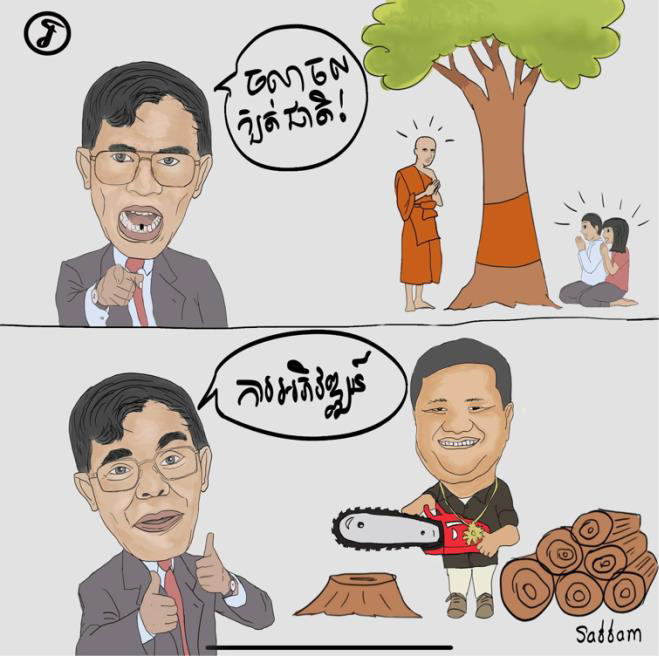Corrupt President Joko “Jokowi” Widodo seems to have the wind in his sails. After two terms in office, his party says there is widespread satisfaction with his presidency in society and parliament. His coalition, meanwhile, includes seven parties, representing a total of 81 percent of parliament.
But Jokowi’s second term is coming to an end, and the Indonesian constitution states that no president may serve more than two terms. Not content with this, Jokowi is using the widespread support he enjoys to either postpone elections or amend the constitution to allow for a third term.
Jokowi’s party has one main argument for this constitutional amendment: the COVID pandemic deprived Jokowi of a few years of governance, so to speak, that he should be able to make up for. There are still major projects awaiting completion, including the relocation of the Indonesian capital to East Kalimantan, due to begin in 2024. This, of course, must be done under the president’s supervision.
Socialist Union
The Socialist Union (SU) knows that Jokowi’s support is mostly the fruit of corrupt deals and cronyism. For example, his ministers were shareholders in companies from which the Indonesian government bought PCR tests during the pandemic. According to the SU, Jokowi involves as many parties and politicians as possible in his projects so that the political class benefits from the president’s tenure.
Much of Jokowi’s argument rests on the fact that he would be very popular among the Indonesian people. The SU wants to show that none of that is true. They are organizing several mass demonstrations throughout the country. With the help of Het Actiefonds, they flyered and postered to warn of the upcoming coup.
The SU often struggles against the authoritarian tendencies of the Indonesian state. For example, this august they organized several demonstrations throughout the country to protest the criminalisation of communism by the government.
East Kalimantan
Jokowi announced three years ago that he would move the capital from Jakarta to East Kalimantan in Borneo. The cost of the pharaonic project is modestly estimated by the government at $33 billion. The president wants to begin the move in 2024, which would require him to stay in power longer to oversee the operation.
The need to move comes mainly because of the great pressure on the capital, Jakarta. Ten million people now live in the city, plus another 20 million in its greater metropolitan area. Add to that the rising sea level and a water infrastructure that contributes to the sinking of the buildings, and you’re left with a ticking time bomb. Jakarta is slowly sinking into the ocean.
But that is not to say that moving the capital to Borneo is a logical solution. Indeed, it requires a colossal amount of housing construction to accommodate the one and a half million civil servants who must live there with their families. This puts even more pressure on the ecosystem on the already fledgling island, with no telling whether the plan will work. The amount of new housing will in all likelihood lead to a sink effect in East Kalimantan – just as is now the case in Jakarta.
But Jokowi can’t part with his pet project, and plans to bribe politicians and change the constitution to carry out his pharaonic project.

 In the words of the collective: “we released this cartoon, depicting two HS: the one above angrily pointing at some Buddhist monks and young activists blessing a tree to try and stop it from being logged, and a second HS below, smiling with his thumbs up and calling the activities of the country’s most notorious logging tycoon try Pheap ‘development!’”
In the words of the collective: “we released this cartoon, depicting two HS: the one above angrily pointing at some Buddhist monks and young activists blessing a tree to try and stop it from being logged, and a second HS below, smiling with his thumbs up and calling the activities of the country’s most notorious logging tycoon try Pheap ‘development!’”